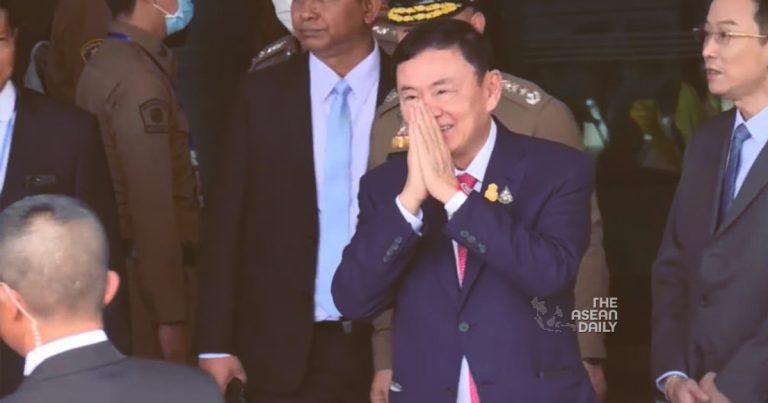20-12-2023 (BANGKOK) Former Prime Minister Thaksin Shinawatra will be eligible to be detained outside of prison under a new regulation that allows qualified inmates to be held elsewhere, confirmed Deputy Prime Minister Somsak Thepsutin on Wednesday.
Mr Somsak, who previously served as the justice minister, stated that Thaksin meets the criteria outlined in the regulation, which was issued and became effective earlier this month.
According to the regulation, prisoners eligible for detention outside of prison must meet specific requirements set by the Department of Corrections and be evaluated by a screening panel established by the department.
Mr Somsak explained that Thaksin’s prison sentence is less than four years, and he is not considered a threat to public safety. “So he is eligible [for detention outside of prison], and his remaining sentence is relatively short,” he stated.
The minister from the Pheu Thai Party strongly denied his involvement in the regulation, asserting that it was recently issued and aligns with the 2017 Corrections Act, which came into effect before he assumed the role of justice minister in the previous administration.
He emphasized that the regulation, which provides an alternative form of detention and could help alleviate prison overcrowding, is internationally accepted and was not specifically intended to benefit Thaksin. However, he acknowledged that Thaksin’s case has attracted attention due to his high-profile status.
Thaksin, 74, returned to Thailand on August 22 after 15 years of self-imposed exile to face punishment for corruption and abuse of authority during his time in office prior to 2006. He was sentenced to eight years in prison on the same day, later reduced to one year through a royal pardon.
Following his transfer from Bangkok Remand Prison to the Police General Hospital on the night of August 22 for health reasons, Thaksin has reportedly remained there ever since.
Thursday will mark 120 days since Thaksin was admitted to the hospital, just hours after being incarcerated. According to the law, the minister of justice must personally approve any stay exceeding 120 days for an inmate receiving medical treatment outside a prison hospital.
“10,000 Inmates Eligible”
Mr Somsak dismissed criticism suggesting that the corrections regulation undermines the court system, stating that the Department of Corrections is responsible for overseeing a prisoner’s sentence. “But the process is not limited to detention in jail,” he added.
According to Mr Somsak, approximately 10,000 inmates could be eligible under the regulation.
He viewed Thaksin’s case, including his prolonged hospital stay, as an opportunity for corrections officials to explain the regulations to the public.
When questioned about Thaksin’s sudden illness shortly after his return to Thailand, despite appearing physically fit, Mr Somsak attributed it to the tremendous stress one experiences in such circumstances. He suggested that reporters spend a few nights behind bars to gain firsthand experience.
Sahakarn Phetnarin, deputy permanent secretary for the Ministry of Justice and acting director-general of the Department of Corrections, stated that a working panel is finalizing guidelines related to the regulation. However, it remains uncertain if they will be ready before the end of the year.
Regarding whether Thaksin will continue to stay in the hospital or be transferred to his house, he mentioned that the panel would determine the appropriate venue for each inmate. However, any chosen venue must still provide a level of supervision and control over the inmate.
He declined to disclose if Thaksin would be among the first inmates to benefit from the new regulation, stating that the list of eligible inmates is compiled by prisons nationwide.
Pichit Chaimongkol, leader of the Network of Students and People Reforming Thailand, submitted a petition to the Senate committee on human rights on Wednesday, urging an investigation into whether Thaksin still requires medical attention. Corrections officials and the Police General Hospital have refused to provide details, citing patient confidentiality.
Senator Somchai Sawaengkarn, who chairs the committee, announced that they would invite Justice Minister Tawee Sodsong and relevant authorities to provide details about the corrections regulation and Thaksin’s case on Monday.
Last week, a doctor told a House committee that Thaksin was suffering from hypertension, narrowed blood vessels, and hepatitis B. He has undergone two surgical procedures for undisclosed conditions since his admission to the hospital. Officials have chosen not to provide further information.




